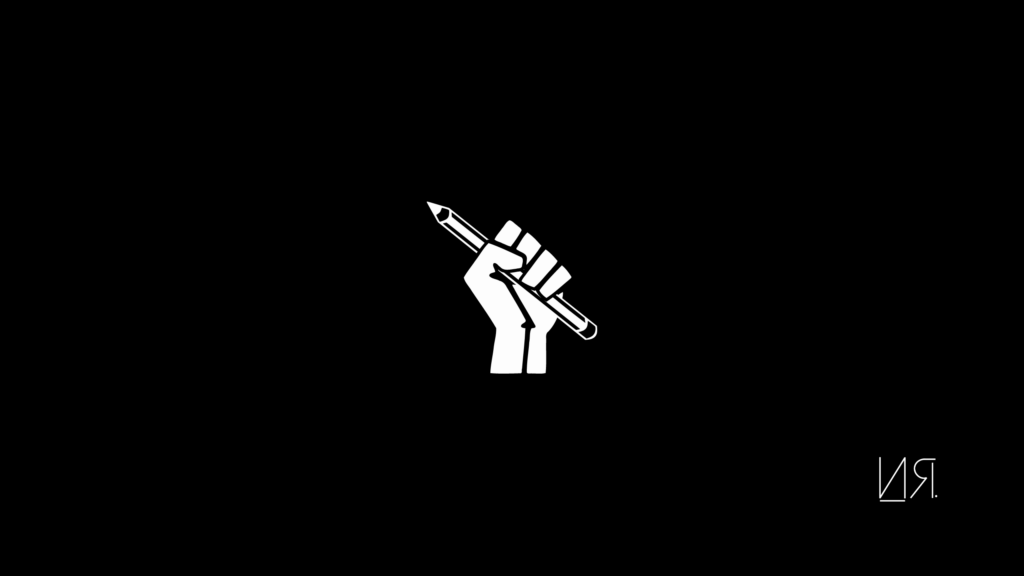I was surprised when I surveyed a bunch of professionals in 2019.
I was trying to understand how they felt about their creative output and what was holding them back.
The results I got back then illuminated the path for me to develop and provide tools that boost the creative confidence of professionals.
The main challenges people had were “not enough time”, “no community”, “no motivation”.
What surprised me was the answer to the question, if you had unlimited resources what would you do?
Most people responded – write more.
Is that Write?
Most of us write but don’t see it as an activity that can boost our livelihood.
When we have to do it, it’s done out of necessity – to write emails, send out memos, type up rapid text messages until their thumbs get sore.
We don’t see the benefit of this mental exercise and how it can help us achieve some of our deepest inner goals.
You might already know this but there’s just not enough time.
Your day job requires your full attention.
Chores in the house keep piling up.
Debt needs to be reduced.
Bills need to be paid.
Writing just adds to the list of things to do.
Back in that 2019 survey, one person said an ideal solution would be to “clone themselves to get to all their other tasks”
Clones might still be a few decades away (or maybe next year, who knows).
Perhaps there’s something else that can help you with your tasks.
Something that can help you externalize your thoughts.
Something that provides an external scaffolding system to your ideas, so you’re not starting from scratch again.
Something that gives you more clarity and emotional depth so that you don’t only prioritize the important, but more importantly, you deprioritize the unimportant.
What could that thing be?
Ding! Ding! Ding!
You guessed it.
Writing!!!
Writing fosters intellectual, emotional, and physiological growth.
All of this is important in your personal life and will be important to safeguard your career as we go deeper in the automation age.
Tap into the benefits of writing to cultivate personal and professional growth.
Write to develop your creative confidence and become a more well-rounded person
5 Ways Writing Brings a More Well-Rounded Life
I was talking to a friend recently about the benefits that writing brought to my life.
Then she stopped me mid-sentence “but Nifemi, I don’t want to WRITE!”
I asked, “ok, what do you want to do?”
She responded: “I need to focus on building my brand for my business”
I asked what was stopping her from doing that. She paused and responded, “Nothing really. I just…need to get clear…on my story…and write it down”
This damn writing thing just keeps showing up.
You are already writing. You do it daily. You perhaps do it the same way you were taught in school to do it.
Write to pass on information.
Write and get graded.
According to Brazilian Philosopher and educator, Paulo Freire, author of the Pedagogy of the Oppressed, this is the banking system of education.
Where students are seen as empty bank accounts that teachers deposit knowledge into.
One of the ways to break away from this cycle is to embrace your role as a full being that can constantly transform reality.
This happens through action and reflection, both of which happen with writing.
By adopting a regular writing practice, you’ll live a life with clearer purpose.
You’ll show up in the world more confident – in a way you want to be remembered.
You’ll unearth parts of yourself that might have been suppressed and continue to discover who you are.
Here are 5 benefits of writing that you can tap into now:
1. Write for intellectual growth
Writing is not a nice-to-have.
It is the most important thing – for growth, innovation, and communication.
I remember trying to publish a paper with my professor in grad school at Texas A&M.
We were researching multivariable controls of distillation columns, trying to get into a peer-reviewed scientific journal.
It was a decent amount of effort – researching, writing, rewriting.
After two revisions, we didn’t get published. Don’t worry, it’s not like I’m salty about the whole thing.
Anyways.
The more I write, I remember the importance of my research-driven engineering background.
Writing is the medium through which research is done.
Reading the literature, thinking about it, writing notes down, observing, running experiments, writing more notes, connecting ideas.
As intellectual curiosity leads, writing just happens.
Writing becomes the medium.
Linguist Walter Ong observed that writing is necessary to help the human mind achieve its full potential.
Writing allows you to externalize your thoughts with symbols (letters and numbers) that you can reflect on, transform, and build.
If you want to build your mind, treat writing as the most important thing to do.
Read things you’re interested in, attend lectures, and take notes with the intention to spark your intellectual growth.
You don’t have to write a single line of a manuscript. Just write it for growth.
“The truth does not belong to anyone, it is the outcome of the scientific exchange of written ideas. This is why the presentation and the production of knowledge cannot be separated, but rather two sides of the same coin”
~ Sonke Ahrens, How To Take Smart Notes
Write to sharpen your thinking and foster intellectual growth.
2. Write for self-discovery
Writing is what you need to discover your interests and talk about it in your own voice.
I write to discover what I know.
The blank screen can be so intimidating.
What should I do?
What should I write?
Will it make sense?
Let me just forget it. Not today. Maybe another.
That’s how we run from writing (or building businesses). A false perception that writing should come from perfect thoughts or businesses come from perfect ideas.
The reality is you have to cultivate your interests through the process.
Writing is not the result of perfect thinking, it is the process to get there.
It is not a linear process.
A lot of us think the way we’ve been taught. Put pen to paper when you have something well-thought out.
For examinations.
For presentations.
For publications.
So we follow a process of extreme research first and seek complete clarity before we start writing.
This linear approach is limiting.
The better approach is to use writing to discover where your ideas take you.
Treat writing like an adventure. When you find your interest has taken you to a place of focus, you already have the material available to arrange in a linear persuasive manner for presentation.
You will never start from scratch again.
With the circular approach, writing becomes part of the process that feeds your curiosity.
Write to discover yourself and find your voice.
3. Write for emotional growth
You become the type of person your thoughts tell you to be
When I published my first book, I was surprised to find myself depressed.
I didn’t have any motivation to do anything.
I thought I would be excited about achieving such a milestone. A lot of people dream about publishing a book.
Then I searched online and learned there was something called “Post-creation depression”
Not sure it’s a clinical term but a lot of entrepreneurs and creatives talk about the void that exists after overcoming a huge milestone – product launch, published book.
There was one thing I did to get out of my funk – I continued writing.
Not for a book this time, just for myself.
Our brains function on dual-process reasoning (DPR) with two systems.
“System 1 thinking” is unconscious and automatic. It is necessary for survival and protection. “System 2” is the slow-thinking self that takes its time to process stuff.
The imbalance in the two systems of our brain holds us back from being our true selves. We, however, can rewire our brains.
Part of what makes us unique as humans is our ability to self-reflect.
When you can identify what’s wrong and know you have the capacity to change, there’s hope for growth.
Some don’t want to reflect, leaving now room for growth. But that’s not you, my friend.
Writing, especially journaling, gives room for reflection. It nurtures your conscious System 2 to process your stimuli and feelings.
With a better grasp of these feelings, you can show up more confident in the world.
“The central idea of DPR is that there are two very distinct types of responses and reasoning that arose at distinct points during human development. The interaction between these two systems determines our personalities, our outlooks, our characters, our emotions, and our behaviors.”
~ Dr. Ski Chilton, The Rewired Brain
Write to build up your emotional intelligence.
4. Write for healing
The page can be your on-demand therapist.
I have a box filled with moleskins – my little black notebook – that I started writing in when I lived in Austin.
I always have one handy.
It’s where I organize, understand, transform, and build up my thoughts and emotional bandwidth.
Research shows that expressive writing can be used to heal emotional wounds.
It acts as self-therapy for people recovering from deep emotional pain or going through a transition in life such as switching professions.
According to James Pennbaker, a cognitive psychologist at the University of Texas, Austin, adults at any age can get positive emotional benefits from writing.
Through a series of short 20-minute writing prompts, people that participated in his study described a sense of feeling happier immediately after writing.
They also expressed less attachment to depressive thoughts and anxiety.
Writing is a form of therapy that is always accessible to you.
Write to heal yourself from emotions and thoughts holding you back from the things you want to in life.
5. Write for presence
Don’t write for the future. Write for now.
When Press Play came out, it was the #1 new release in Ethnomusicology.
My book was trending alongside David Bowie. (Take that, scientific journal. As I said – not salty at all)
Another category that my book was trending in was Creativity Self-Help.
I was more happy about that because right next to my book was a legendary book – The Artist’s Way by Julia Cameroon.
I read The Artist’s Way years before Julia and I were in the same category (Oh yeah! we are on a first name basis now – at least in my head).
In the book, along with other tools that help nurture your creativity, Julia Cameron describes practices that unleash your inner artist.
One of those practices is called morning pages.
With morning pages, you sit down and write 2 pages in your journal every morning.
There’s no formula.
No right or wrong.
You just write anything on your mind.
This practice clears out your mind.
It allows you to investigate what is top of the mind for you.
It brings awareness, clarity, and presence.
Similar to meditation, it is another practice that can make you feel more whole in the moment.
The 10 minutes you spend doing this exercise gives clarity to prioritize the “important” over the “urgent.”
Clarity is not just about what we should be doing, it is more about what we shouldn’t be doing.
Write to bring presence and clarity to your life.
Final Thoughts
People talk about “escaping the matrix.”
If you truly want to escape the matrix, start writing.
Take action, reflect, and repeat.
Developing a writing practice has tremendous benefits that will help you live a more meaningful life.
Write to externalize your thoughts, so you can observe, organize, transform, and reflect on them. It builds your memory, creativity, and intellect.
Writing provides the space to express and understand your emotions. It will help you discover who you are as you heal from past emotional trauma.
Writing brings clarity and presence to your everyday life. Use it to cut through the noise and build up that internal signal that you should really be paying attention to.
Write for yourself.



